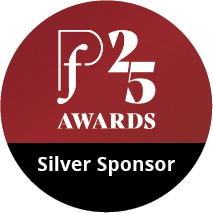This is the first of two blogs on some of the basics of interviewing, so we thought we’d start this mini-series highlighting some of the most important candidate interview do’s and don’ts.
In our experience, no matter the industry or level of seniority, navigating an interview is not a simple tried and tested formula.
Every aspect of recruitment, from pre-interviewing and vetting through to onboarding and retention, has changed. Industry shifts caused by market conditions and the increase in remote interviewing all mean interviews must adapt to meet the needs of the modern workplace.
Interviews, interview strategy and interview planning are as subject to changing trends and industry movements as anything else in recruitment and HR. Consider this a bit of new recruitment market myth-busting, courtesy of Evolve!
So, without further ado, here is the Evolve Interview Do's and Don’ts guide for Candidates…
Do.
Ask Questions.
● We cannot implore this enough of candidates. Be curious. Ask questions. Ask about the role, the last person in the role, why the role is vacant, and what you should expect from the role. Ask your interviewer what they should expect from you. There are never enough questions you can ask.
● An interview represents one of the only open forum opportunities to mine your interviewer for information on the role, the company, their plans, and your place within it all. So don’t leave any stone unturned.
Dress to impress, even online.
● Although we don’t completely believe in dressing for the job you want, not the job you have, there is nothing wrong with making sure you turn up in appropriate attire.
● Never forget the basics of interviewing - showing up in your Sunday best might be a touch overkill, but smart clothing shows respect for the occasion and that you’re approaching the interview process from a place of professionalism.
● We may all be doing everything on Zoom and spending less time in office, but compromising on this, at the interview stage, is fatal for a job application.
● The basics still count, respect is still important, and displaying professionalism is vital.
Remember the basics of positive body language.
● From looking at windows or facing doors during an interview, to crossed arms and eyes dropped to the floor, body language matters - remember, it’s what you're saying when you’re not saying anything.
● This is where a bit of practice makes all the difference. Positive body language comes from control, awareness and continuous adjustment to posture, facial expression and tone of voice. So practise answering questions. Film yourself practising questions and review how you engage.
● Confidence is bred from knowing how you approach every question and every answer, and this will feed down into everything from your posture to the way you gesticulate during answers.
Remember to relate anecdotes and experience to achievements.
● Relate as much working evidence and experience back to tangible moments on your CV, and always elevate achievements over skills when talking about yourself.
● This will mean your interviewer can see where, when and how you achieved something in past roles, better visualising how you will fit into their company.
Don't.
Be late!
● If you’re holding an interview online, there is no excuse. But similarly, turning up late to an in-person interview shows a critical lack of forethought and planning.
● If you are going to be late due to traffic, or you’re experiencing digital issues and cannot access a remote interview, do not hesitate to let your employer know as soon as possible. Be open, honest and receptive to feedback on future interview planning: hiccups happen and it’s not fatal to a job interview unless you refuse to communicate.
Forget the follow-up email.
● A follow-up email is one of the easiest things to forget. If an interview goes badly, it may be something you don’t want to do. But I find even sending a simple thank you shows courtesy and respect.
● A follow-up is also an opportunity to double up on points raised in the interview. Perhaps you mentioned a project you worked on you think your interviewer may want to read more about - that’s your chance to show them!
Be aloof!
● Lastly, attitude to interviews is everything, because it reflects your attitude in how you work.
● Every point raised above speaks volumes about how you’d approach teamwork, meeting deadlines, how you work with management and more. So if you approach an interview from a place of aloofness you’re not displaying confidence - you’re displaying arrogance.
The bottom line.
The ball is very much in your court when it comes to recruitment - the low supply/high demand of specialist talent in the pharmaceutical and healthcare market has created a perfect storm of candidate supremacy.
But an interview is neutral ground. It should be treated with professionalism, grace and thanks.
For more helpful advice and tips, contact Evolve!



